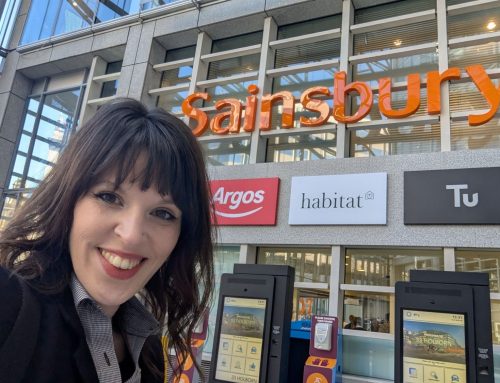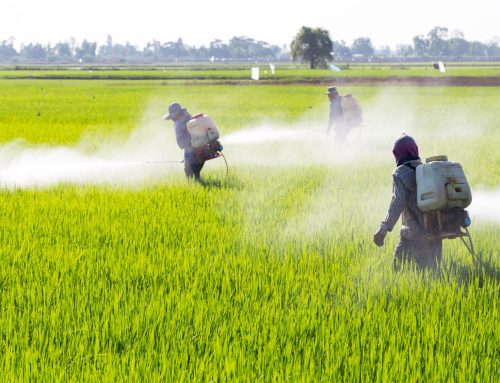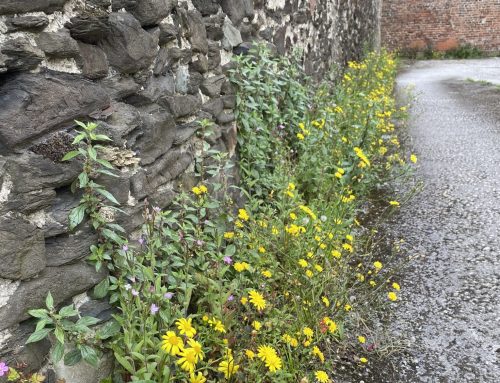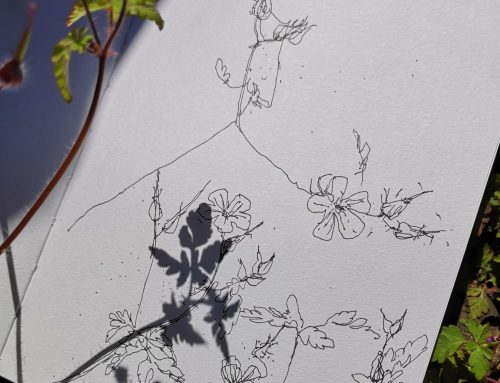By Stuart Fraser, Kersten UK
Hello readers of the PAN UK blog,
I work for a company called Kersten UK. Our business specialises in chemical-free integrated weed management and we’d love to share some of our thoughts with you on the topic.
We’ve noticed a trend of public bodies moving away from using chemicals
Governments, local councils and companies across the world are making a move away from using weed killer, in particular glyphosate, in urban spaces. Legislation has already started coming into force across the EU and public pressure to search for alternatives in the UK is increasing. Below, we explore some of the reasons why we need to move away from using chemicals in urban areas. We also take a look at the options we have available to help in this area.
Herbicide Resistance
The University of Nebraska recently published an article showing that more than 29 species of weed had developed a tolerance to herbicide. In fact, herbicide resistance has been a known problem since the 1950s. Rather than replacing one chemical with another, it’s time to make a move away from chemical weed control towards safer methods such as mechanical and thermal weed removal solutions.
Bees and Pollination
Use of herbicide has shown to adversely affect local bee populations. Weeds also provide food for pollinators and other wildlife and are crucial for healthy ecosystems in our towns and cities.
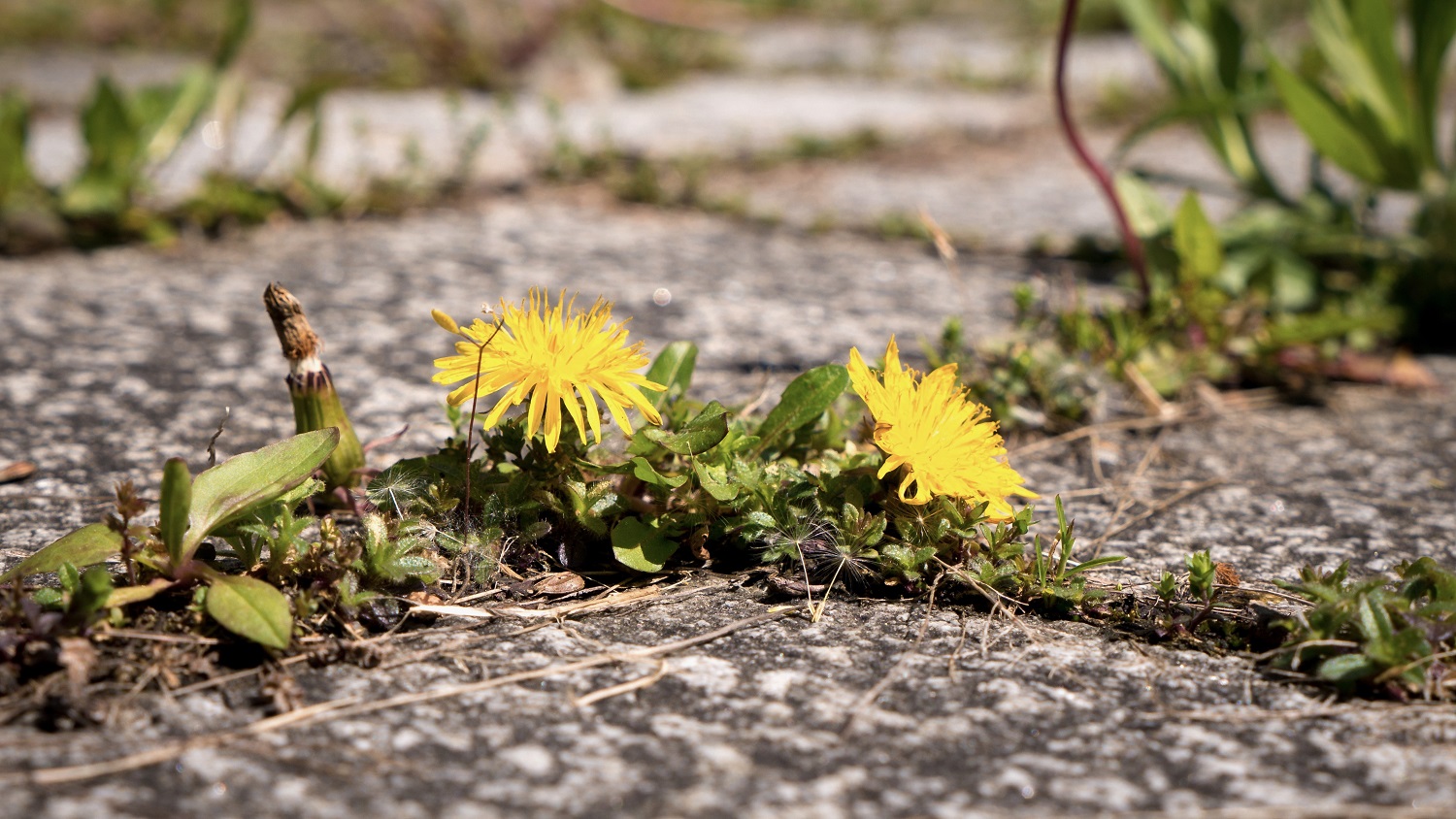
Dandelions provide food for pollinators and other wildlife in urban environments. Copyright: Floki at Shutterstock
Health and Wellbeing
There is now a reluctance to use chemicals, such as glyphosate, due to the health concerns pointed out by many international bodies, including the World Health Organization’s International Agency for Research on Cancer (IARC) who released a statement in 2015 stating that glyphosate was “probably carcinogenic to humans.” This has led countries like France to ban it for urban use.
UK Weather
Another important factor to consider in the UK is the weather. When using chemical weed killers you are relying on having at least 24 hours of rain-free weather for application. This can be an uphill battle in autumn, winter and spring. Rain can lead to the wrong plants being targeted, as well as run-off into other areas you’d want to avoid. Most outdoor surfaces are meant to drain or run off to drainage and water-quality monitoring studies have demonstrated that there is a disproportionate contamination of waters by non-agricultural pesticide use.
What is an effective chemical-free solution to the problem?
Kersten has helped to develop a number of pesticide-free methods for organisations to manage weeds all year round, using an integrated approach.
Winter
Weedbrushing and collection of soil has the most impact on weeds, by preventing opportunities for growth. Depending on the size of the job we offer a range of brush attachments for our power units, as well as the dedicated Weedo II which is more portable and easier to use than ever before.
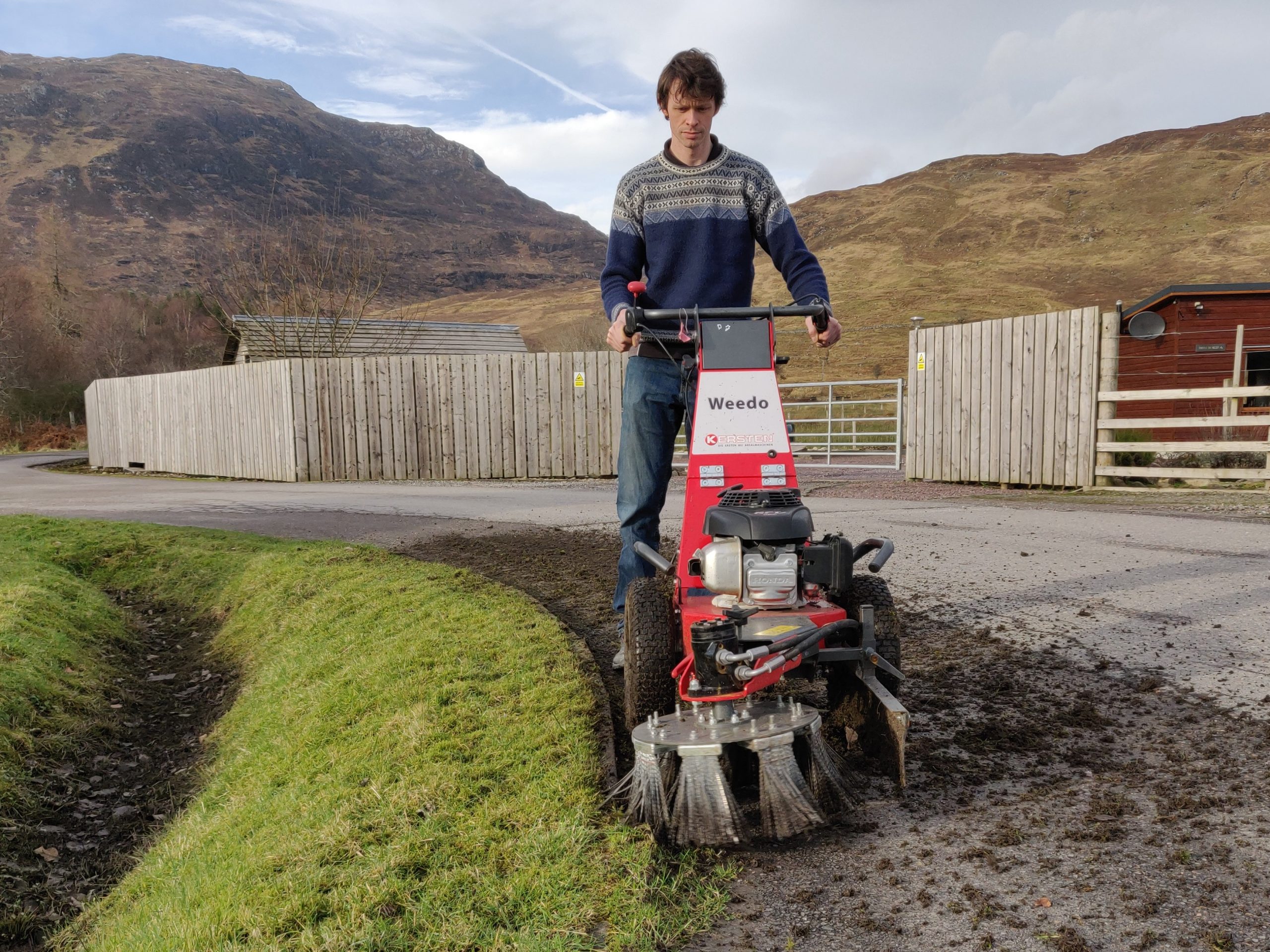
Weedo II by Kersten UK
Spring
Several treatments with heat, such as a Ripagreen Thermal Heat Lance, will kill the emerging weeds before they seed. When these weeds die they can be swept up to keep the surface clean.
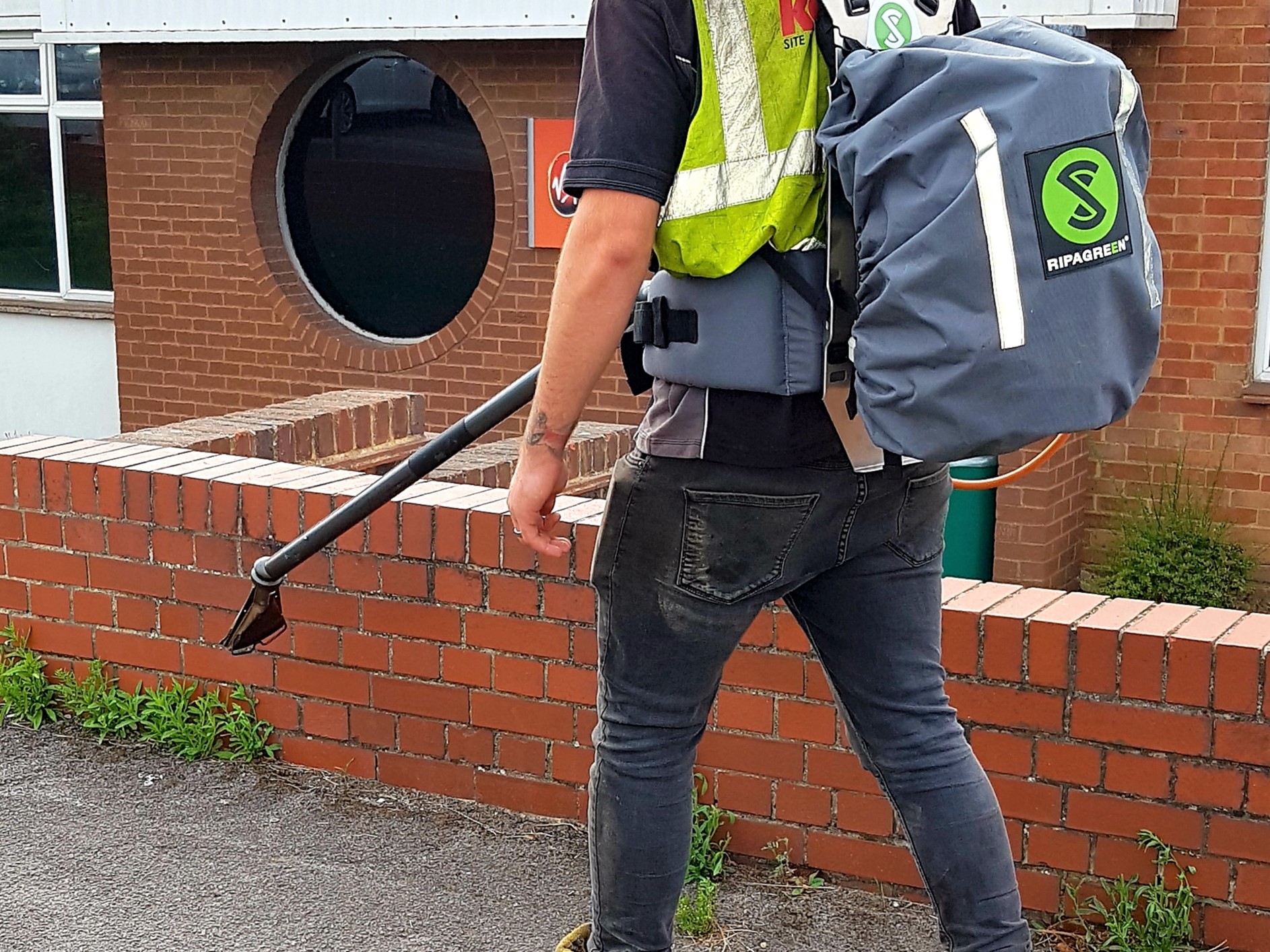
Ripagreen Thermal Heat Lance by Kersten UK
Summer
Sweep up grass cuttings, hedge clippings and other organic debris to prevent these from decomposing and forming more soil. Kersten supply a range of sweeper attachments for power units, as well as ATVs, compact tractors and ride on mowers which many sites already own.
Autumn
Collect dead leaves and other organic debris that naturally falls from deciduous and annual plants in autumn to prevent these from decomposing and forming more soil. Again, this work can be carried out by a sweeper and more bulky material can be moved with a blower or vacuum collector.
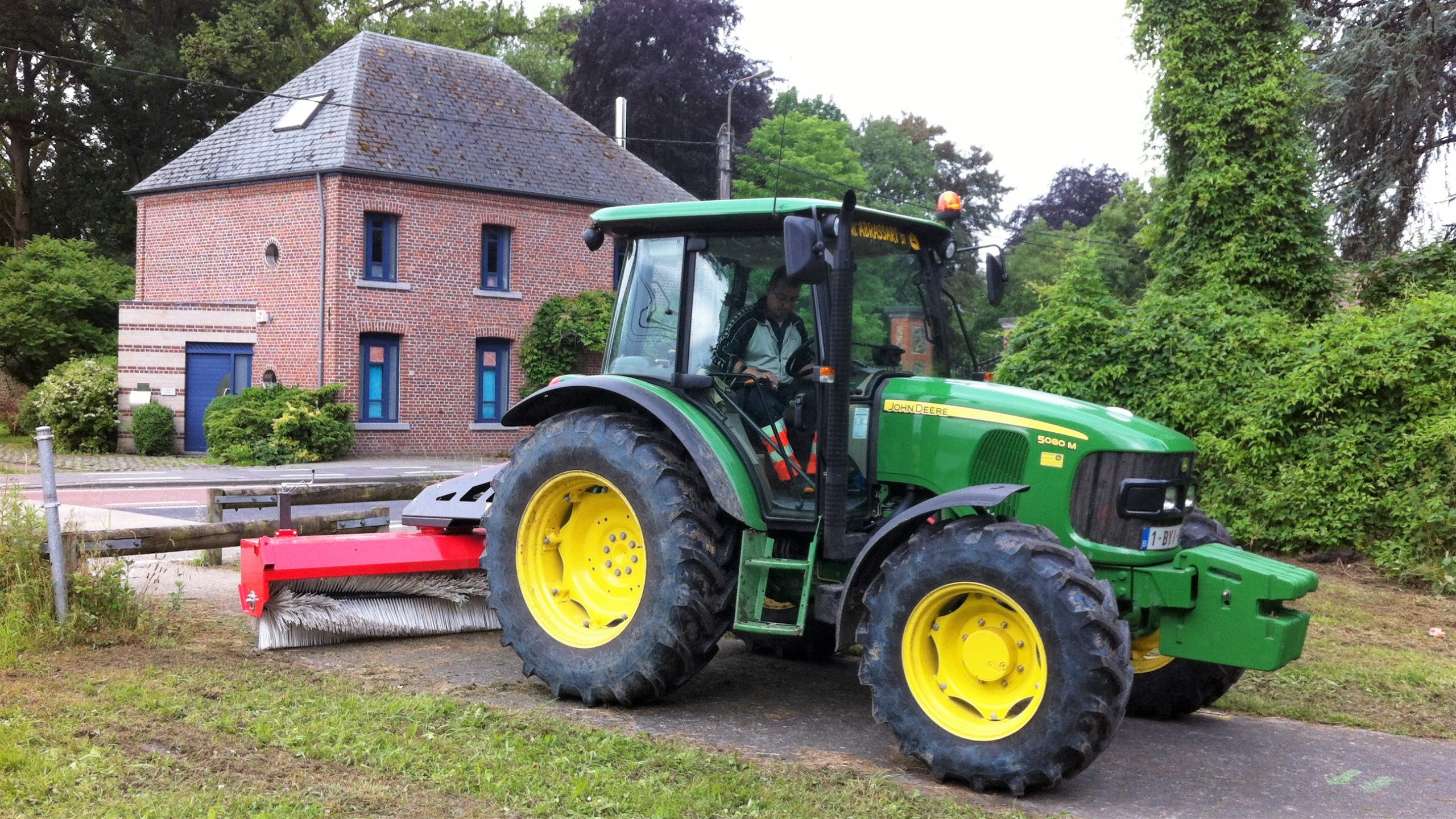
Tractor Mounted Sweeper
Unfortunately, while being chemical-free, our current methods of weed management run off petrol engines which still affect the environment around us. We are currently working on a carbon-offset plan, as well as investing in new technology such as our new HyCut Hybrid Mower and some very exciting developments that we’ll announce soon across the rest of our range.
Message from PAN UK:
We believe that weeds in urban areas are necessary as food for wildlife and for our overall mental health, but in certain circumstances they do need to be removed. In those instances, a pesticide-free approach should be undertaken.
Sign up to help end the use of pesticides in your town or city.

